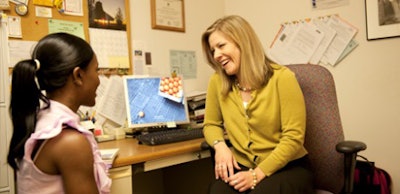 Students are turning to other sources instead of their academic adviser for information about their schoolwork.
Students are turning to other sources instead of their academic adviser for information about their schoolwork.At a time when research shows that academic advising is a key to helping college students graduate on time, most say they aren’t getting it.
Sixty percent of students say someone other than an academic adviser is a primary source of information about their schoolwork. About a third of freshmen and 18 percent of seniors rely on friends and family, and another 18 percent on faculty who are not assigned as their advisors.
The disclosure is part of the annual National Survey of Student Engagement, based at Indiana University Bloomington, which polled nearly 335,000 freshmen and seniors in the spring at 568 colleges and universities about their classroom experiences, how much they interact with faculty and classmates, whether their courses were challenging, and how much they think they’ve learned.
The survey also found that 45 percent of freshmen and nearly 40 percent of seniors said their courses did not challenge them to do their best work.
Students in online courses spent more time preparing for class and doing assigned reading than their counterparts in conventional classrooms, but also that they were significantly less engaged in collaborative learning such as virtual discussions.
The amount of time students report they spend getting ready for class rises slightly during their college careers. Freshmen spend 14 hours and seniors 15, about half of that doing assigned reading.
Sixty percent of students say people other than academic advisers, including relatives and friends, are their primary sources of information.
While research shows that academic advising improves the odds of students graduating on time, the number of students for which each advisor is responsible has steadily risen from 282 in 2003 to 367, according to the National Academic Advising Association and the college-admissions testing company ACT. That means longer waits for appointments with advisors, who are often not available at night or weekends when growing numbers of students attend class.
Except for universities that choose to make it public, the results of the student-engagement survey are not made available on a campus-by-campus basis, preventing side-by-side comparisons—purposely, according to some critics.



















